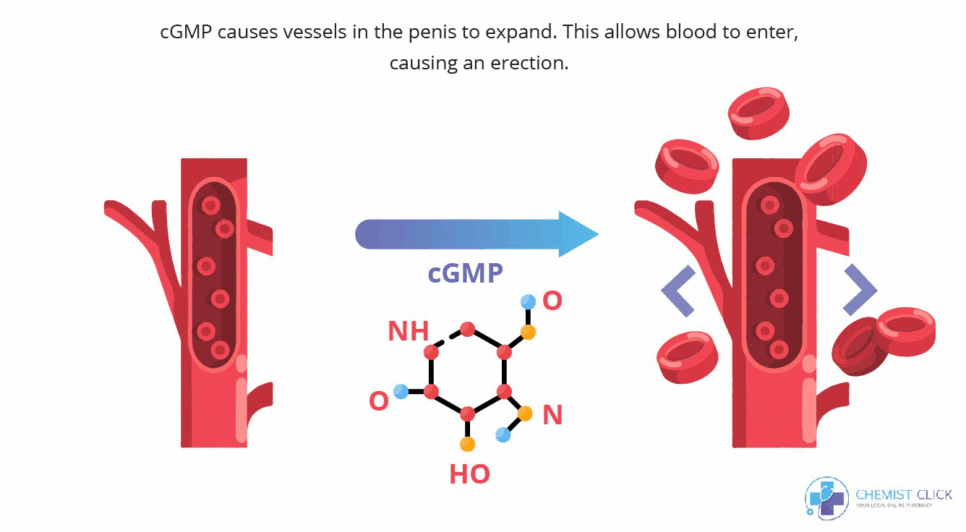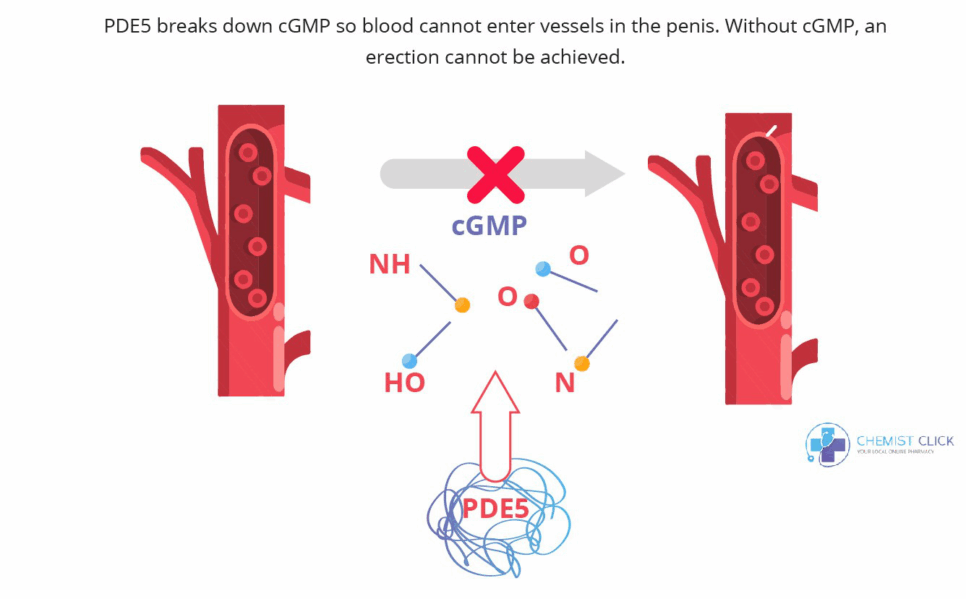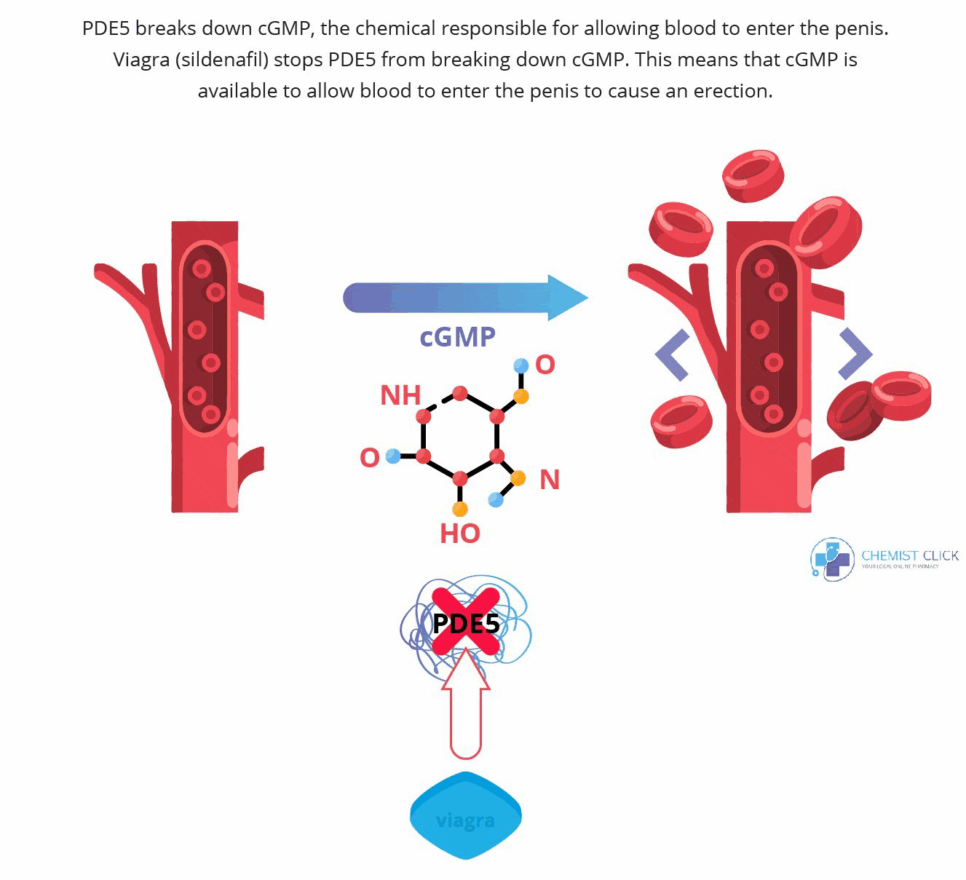How Does Viagra (Sildenafil) Work?
Key Points
- Viagra works by improving blood flow to the penis, when a man is sexually stimulated
- It does not increase sexual desire, and will not work without sexual stimulation
- It does not delay ejaculation


Written By Chemist Click
Reviewed By Pharmacist Abbas Kanani
Last updated on 9th December 2025 • 8 minute read




